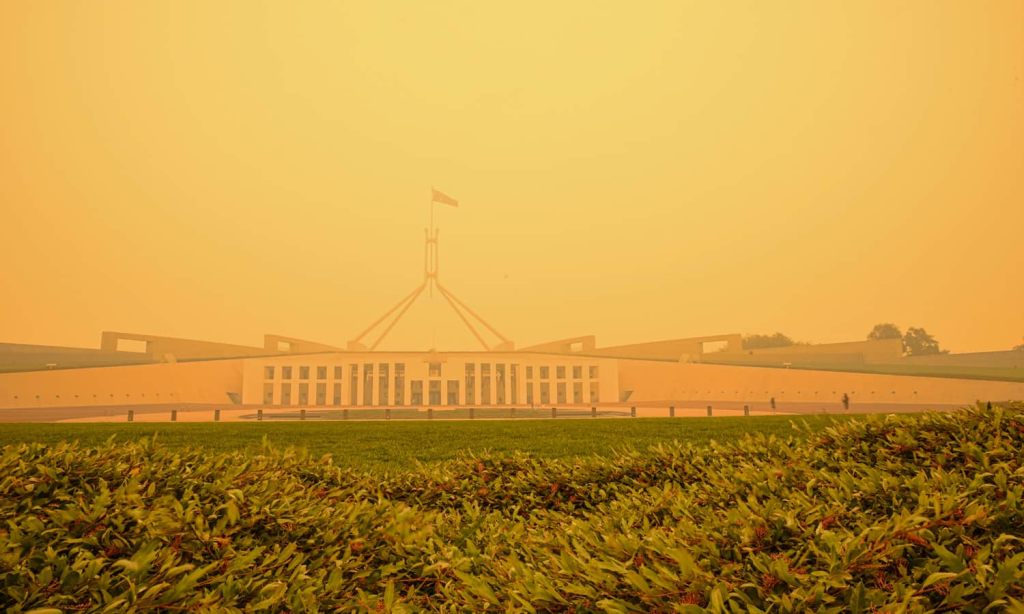It’s been a huge week for climate change developments as international leaders make bold statements in the fight against climate change at the United Nations General Assembly.
The United States has pledged billions of dollars to help developing countries move away from fossil fuels and towards green energy, doubling an April commitment from $5.7 billion to $11.4 billion.
China too has announced that it will stop financing coal power stations overseas, joining Japan and South Korea who committed to the same earlier this year. As one of the biggest financiers of international coal, the move effectively ends new coal-fired power stations across much of the globe and will have serious implications for the future demand for Australian coal.
UK Prime Minister Boris Johnson made a speech in which he said that the “adolescence of humanity is coming to an end” and that the world must “grow up” and listen to the scientists on climate change, adding that “we must come together in a collective coming of age.”
In November, the 26th UN Conference of the Parties or ‘COP26’ will be held in Glasgow, Scotland. Much like the Paris Agreement, and the Kyoto Protocol before it, Glasgow is shaping up to be a pivotal moment in international climate change policy as Johnson hopes to burnish his county’s reputation on the international stage post-Brexit and facilitate potentially planet-saving agreements.
With just 38 days to go before the conference, and countries coming to the table ready to act, the eyes of the world are turning on Australia. The question remains whether Australia will finally join the global fight against climate change or continue to hamper progress – with catastrophic international consequences.
What is Australia Doing about Climate Change?
A new survey this week revealed that a clear majority of Australians want the federal government to cut greenhouse gas emissions to net zero by 2050. 60% of respondents agreed that this would need to be done, indicating a rising domestic pressure for the government to act, coupled with similar pressures from international leaders.
So far, 129 other countries have now committed to reaching net zero emissions by 2050.
However, the Climate Council, one of the countries leading climate action groups, have said that the science demands Australia reduce its emissions even further, by 75% below 2005 levels by 2030 and net zero by 2035.
Only The Greens are posing solutions this ambitious, however, the same report found that 52% of Australians also support net zero by 2030. These policies are in line with what the UN has said needs to be done in its landmark IPCC report and other allies, like the EU, have committed to, and are working on, reducing their net emissions by 55% by 2030.
The Climate Council have said that Australia must at least match the updated commitments from our key allies, and pledge before Glasgow to at least halve our emissions below 2005 levels by 2030.
Professor Will Steffen, Climate Council spokesperson and Emeritus Professor at Australian National University has said that “The [international] contrast with Australia’s poor efforts couldn’t be starker”.
“Australia is refusing to increase its 2030 emissions reduction target, or commit to net zero emissions. It has launched a marketing campaign that claims credit for the renewable energy efforts of states and territories and made a tiny funding commitment to hydrogen hubs, but that’s not going to cut it,” he said.
“The science is clear that the world urgently needs to reduce emissions this decade, but none of Australia’s commitments are a meaningful contribution to this goal,” said Professor Steffen.
In a rare change for a government that appears determined to drag its heels on the issue, Treasurer Josh Frydenberg has today made the case for net zero by 2050 to a meeting of business leaders.
He has warned that Australia’s financial system could be undermined if other countries believe “we are not transitioning in line with the rest of the world”.
The Treasurer has said that the Morrison government cannot run the risk of financial markets “falsely” assuming Australia is a climate change pariah because that would increase the cost of capital and undermine financial system stability.
“In Australia, in the last 12 months alone, one of our leading banks coordinated more than 50 transactions worth $100bn in climate finance-related activities,” Frydenberg has said.
Deputy Prime Minister Barnaby Joyce has come out in support of the motion, arguing that we should get there sooner, as long as the plan “does not leave regional areas hurt”.
Sky News Political Editor Andrew Clennell has said that now seems clear Prime Minister Scott Morrison will commit to a net zero emissions target by 2050 and have a clear plan put in place to support that at the Glasgow meeting.
If Australia, one of the most reluctant climate actors in the OECD, moves ahead on net zero, it could be the start of a real global shift down the path that we need to take in order to reach the targets set by the UN and stave off the worst of the climate catastrophe.
Dr Simon Bradshaw, Climate Council Research Director, said: “As one of the sunniest and windiest countries on earth, Australia could be a global renewable energy powerhouse. Every day of delay is a missed economic opportunity”.
“The world is putting us on notice; Australia can no longer get away with doing nothing on climate change. We have just over a month to deliver a credible climate policy that will enable us to go to COP 26 with our heads held high rather than slink in shamefully as a climate laggard,” said Bradshaw.
Read more stories from The Latch and subscribe to our email newsletter.







